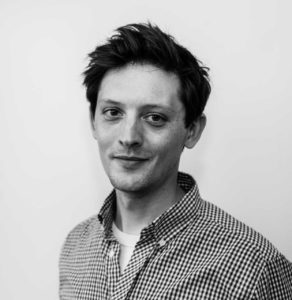Henry White graduated from the University of Exeter in BA English, 2012. He’s currently Photography and Videography Editor for P&O Ferries.

After graduating, I moved to London and worked for children’s charity Action for Children as a web content editor. The role gradually involved more and more photography and video production and after two years my job was formally changed to Multimedia Editor and I took up full responsibility for video and photo production. After five years with Action for Children, I moved into management for The Queen’s Commonwealth Trust as Digital Content Manager. This job didn’t really suit my interests or passions, taking me away from the practical creation of imagery, so after four months I secured a new job, with P&O, and moved to the south coast to start my new role, plus get some fresh sea air and a quieter life away from London. I now work for P&O Ferries as Photography and Videography Editor, responsible for all of the company’s imagery across social media, advertising, B2B and internal comms. This can be as varied as filming stories about crews working on the North Sea to making stickers and animated gifs for Instagram posts, or photographing hazardous waste being shipped between Ireland and Belgium. No day is the same and there is huge variety. I am also gaining loads of new skills and even being trained in seafaring practices to help me do my job whilst at sea. From my desk, I can see France across the English Channel, but more often than not I’ll be scrambling around a mooring deck or deep in an engine room, trying to take photos or capture footage for the next bit of promotional work. It’s good fun.
“I’m responsible for all of the company’s imagery across social media, advertising, B2B and internal comms. This can be as varied as filming stories about crews working on the North Sea to making stickers and animated gifs for Instagram posts, or photographing hazardous waste being shipped between Ireland and Belgium.”
Why did you choose this career? And what do you enjoy most about your work?
I studied A Level photography, and always enjoyed creating images and capturing those moments. It just seemed like a natural thing to do – to be the fly on the wall recording events for posterity, or amusement, or to share with others. I like the idea of capturing things which future generations will find useful or interesting to view, and being able to tell stories about the world we currently live in.
Were a member of any societies, groups or sports clubs?
Exeposé Photography Editor 2010-2011, then Exeposé Editor 2011-2012.
What did you enjoy most about your time at Exeter?
The course was varied and had enough modules to cater for all interests, especially in some more niche areas. I still find myself using knowledge I gained on the course, although annoyingly nobody has ever asked to see my Degree Certificate. Overall, it definitely helped me to better understand ways of interpreting our world, interpreting motivations and viewpoints, and to work independently and efficiently.
What skills and experiences have been most useful for your career?
Patience, perseverance and resilience. Sometimes you won’t hit a target, or a project you work on goes wrong. Sometimes technology lets you down. The ability to bounce back and try harder, adapt plans and aims, or to completely switch directions is fundamental to doing well. The seeds of these skills are sewn at university; when doing research for essays, preparing for exams, failing to achieve the mark you wanted, or just struggling to juggle workloads, they all teach valuable lessons for the future.
“The creative arts sector is incredibly cutthroat and challenging, even for established people, but never, ever work for free – it simply devalues yourself and makes it harder to start charging at a later date.”
Do you have any advice for beginning a career in your area?
Practice; anyone can buy a camera and use it, but creating imagery which works for your audience, which sells a product or tells the exact story you want to, takes practice and hard work. For every good image you take, there will have been 100 bad ones previously, so go out with your camera, set yourself clear aims and briefs, and try to achieve them over and over again, getting better each time. Nobody ever stops learning, especially with modern technology changing so fast, so practice what you do, watch what others do, and evolve your skills.
The creative arts sector is incredibly cutthroat and challenging, even for established people, but never, ever work for free – it simply devalues yourself and makes it harder to start charging at a later date. If other people want to work for free, that’s up to them, but know your worth and stick to it, it’ll work out better for you in the long run. This doesn’t necessarily mean you have to work for money – time, favours and experience are all types of currency, especially when starting out. You may find you can provide someone with photography in return for drinks/food and travel costs. This gives you the chance to show off your skills, make connections and practice your craft. If it goes well then the next time they hire you, they may pay in cash instead. Stick with it, find another job to cover your costs if you need to, and practice constantly. But set yourself realistic goals too. If you haven’t got to where you want to in five years, 10 years etc., then change your approach. Be realistic about your chances, options and abilities, if you fixate on one area or idea you may miss other exciting opportunities, there’s always more options in the area you want to work.
